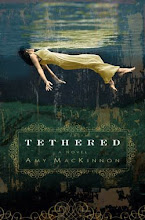It's Always The Work
by Hannah
Blame it on the Academy. I am consumed by films, actors and directors these days. The actual ceremony is not of interest; what I love are interviews. In-depth, what’s-your-process, James Lipton’s Inside the Actor’s Studio type interviews. Film people are different from writers, creative but further down the continuum, living in that moment when a story leaps off the page into someone else’s imagination. I see them as translators of sorts, and love to hear what they respond to in a story, what they preserve or add, what makes it possible for a story to take perfect shape.
This time of year, there are interviews everywhere, 99% fluff. Still, there are always a few tidbits on the joys and agonies of a creative life that resonate as entertainment and inspiration. Here are six bits from recent interviews, packaged for the season:
The Joy of Writing Award goes to Hugh Grant, who has been working on a novel for twenty years. He loves to write, rewrite, tackle the text, wrestle with it, has no idea whether he will ever finish, and adores the unique process and challenges of writing. See? Writers are different and wonderful. And Hugh: get thee to a good writers’ group!
The Run with Your Creative Moment Award goes to Dustin Hoffman. Turns out many of his most memorable moments were not scripted. In Midnight Cowboy he really was almost hit by that taxi, yet stayed in character when he banged on the hood to yell, “We’re walking here!” Writers need to trust those moments when it's flowing the right way, too, and not let internal editors yell “cut” too quickly.
The Perspective on Awards Award goes to Sally Field. Asked if she was proud of her awards, she said no. She is proud of her work; her awards are treasured for the acknowledgment they represent.
The Yes, It’s the Work Award goes to Helen Mirren, who after winning also said it’s the work you have to create, to live with and to build a career upon. She assumed she would never win an Oscar, and gave a beautiful, hearty cackle as she held up her statuette.
The Grace Award to Martin Scorsese. He, too, gave up years ago on getting a statuette, and thinks he would have made less risky choices if he had focused more on post-release possibilities rather than the fullness of individual pieces. Standing ovation, well deserved.
Turning away from the screen, back to print, I think of the authors who fit these categories, writers who persevere and write what they are compelled to write, from John Irving to Alice Munro, from Kiran Desai to Geraldine Brooks. For all those still working on supporting roles or perhaps even enjoying the taste of nomination, here's wishing a moment in the spotlight for everyone who pursues the dream.

